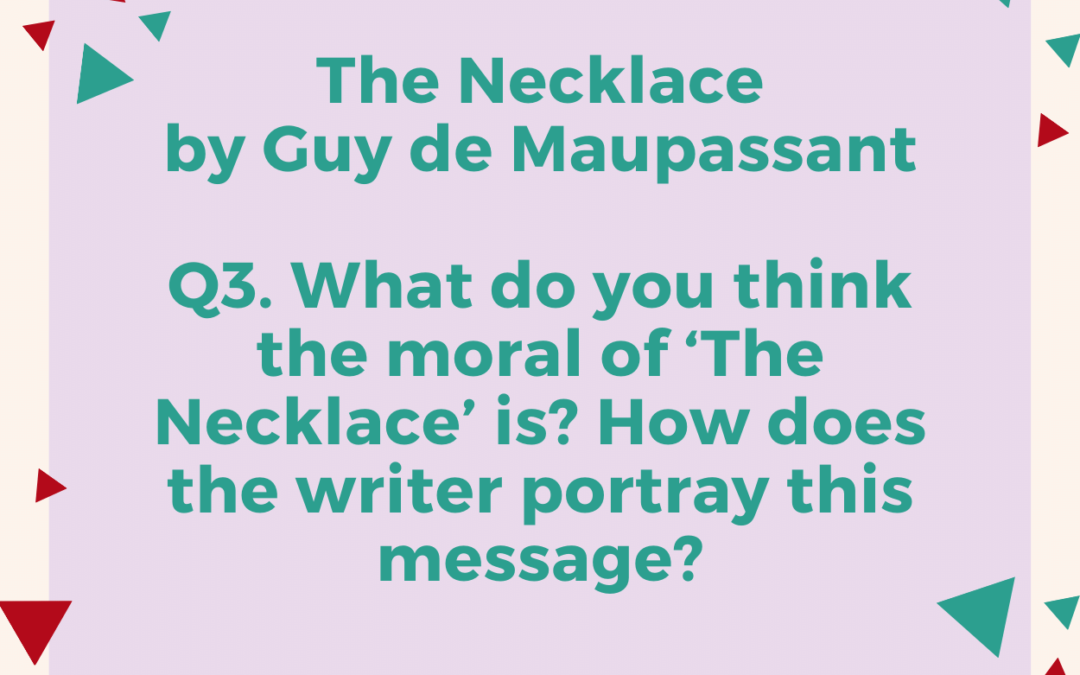Edexcel English IGCSE: The Necklace by Guy de Maupassant
Q3. What do you think the moral of ‘The Necklace’ is? How does the writer portray this message?
In your answer, write about:
- the character of Madame Loisel;
- the importance of material possessions;
- the use of language.
You should refer closely to the text to support your answer. You may use brief quotations.
Edexcel English IGCSE Model Essay by an Expert
The moral of ‘The Necklace’ is that we should not judge our lives by our material possessions. This moral is portrayed through the flawed character of Madame Loisel, who is obsessed with material wealth and consequently very unhappy.
Madame Loisel’s constant dissatisfaction with her life shows the reader that we should be grateful for what we have. In the first part of the story, the writer draws a contrast between Madame Loisel’s life as it is, and how she wants it to be. The description of her apartment uses negative adjectives – “run-down”, “peeling”, “battered” and “ugly” – which contrasts with the grandeur that she wishes she had: “tall, bronze”, “huge”, “great” and “pretty”. Exaggerated language shows how unreasonable her dissatisfaction is: she is “unhappy all the time” and feels that her life is “torture”, implying physical pain. However, her and her husband’s situation worsens later in the story, when they have to live in an “attic room” and are “very poor”. This shows that we should be grateful for what we have, because we could always be worse off.
It is Madame Loisel’s obsession with material possessions which makes her so unhappy. Her happiness is dependent on material wealth, which makes her miserable when she feels that she is not as rich as others. The writer highlights this through the contrasts with other characters in the story. Whilst Madame Loisel is “intoxicated with pleasure” at the luxurious party, her husband spends it “dozing in a small, empty side-room”, showing that he does not need luxury to be happy. Similarly, Madame Loisel’s richer friend, Madame Forestier, does not place much value on material possessions. When Madame Loisel asks to borrow some jewellery, she flippantly replies, “Choose whatever you want”. The fact that these two characters seem to be happier and more content than Madame Loisel shows that it is important not to become obsessed with physical things, as they are not the key to happiness.
The end of the story reveals to the reader that Madame Loisel’s pride and obsession with material goods has caused her and her husband misery for many years. Because she is so obsessed with material goods and considers Madame Forestier to be so much richer than herself, Madame Loisel never considers that the lost necklace might be cheap, imitation jewellery. We also learn that if Madame Loisel had valued her friendship more highly than her own pride, she would never have made this mistake.
Through this story, the writer provides the reader with a strong moral: that material possessions are not the most important thing in life. In fact, an obsession with such things can result in a damaging penchant for comparing oneself with others, and dissatisfaction with one’s lot.



